|
Gathering data is one of the core aspects of a field science, and it’s made possible by using the right equipment. In Coastal Environmental Oceanography, this equipment includes both state-of-the-art technology and basic, everyday tools. Dr. Khalequzzaman took his CEO class out to Wallops Island yesterday to do a beach profile and look at soil and water samples. While there, they used a combination of high tech and low tech devices to collect the data they needed. High Tech: GPSGlobal Positioning Systems allow users to find their exact location using satellites. As part of the Topcon Total Station, Dr. K’s GPS system was used to find different points on the beach for the class’s beach profile. Low Tech: ShovelThe CEO course includes learning about and examining soils in the field. Class members dug a soil trench to look at the different soil strata present in the Wallops Island sand. They did so with none other than a regular shovel. High Tech: Total Station The Topcon Total Station is an advanced set of equipment used in beach profiling. It uses three separate pieces to measure elevation. “Basically, we’re getting a profile of the beach by setting up two points,” said class member Aaron McNamara from Lock Haven University. “The third point keeps changing as you go down the beach, and it records the difference in elevation and change. Then it basically just gives you a profile of the beach. The calibration of the first two is the tricky part.” Low Tech: Oyster ShellThe third piece of the Total Station requires a steady hand to keep the equipment still so the measurements are accurate. It became really difficult to do that when the pole kept sinking lower and lower into the soft sand underneath. Dr. K eventually put an oyster shell underneath the equipment to help the student holding it keep it steady - a low tech solution for a high tech problem!
0 Comments
Leave a Reply. |
About
Everything you need to know about CBFS's educational programs, visiting Chincoteague Island, and more! Categories
All
Archives
January 2019
|
CHINCOTEAGUE BAY FIELD STATION | 34001 Mill Dam Road | Wallops Island, VA 23337 | (757) 824-5636 | [email protected]
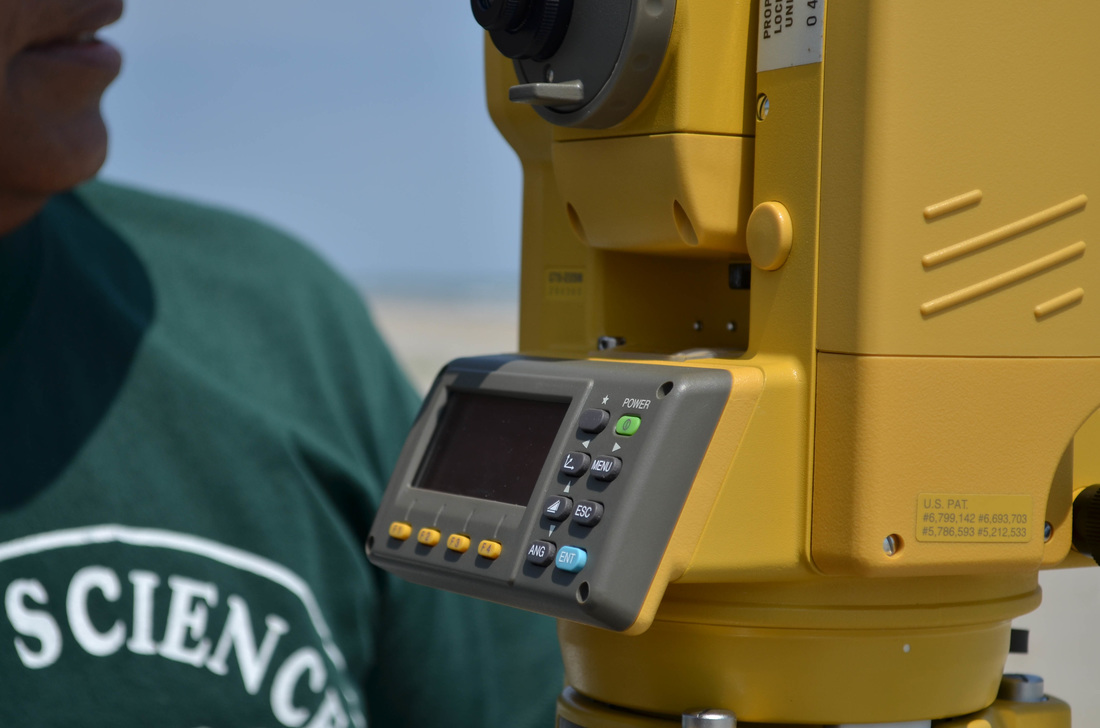
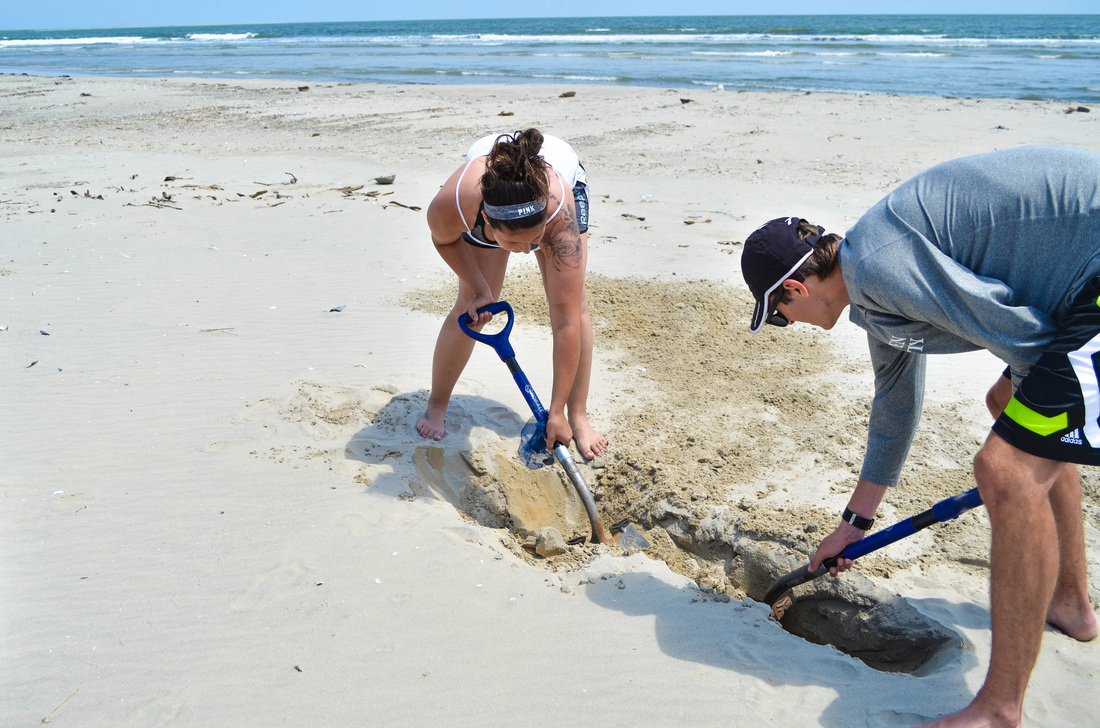
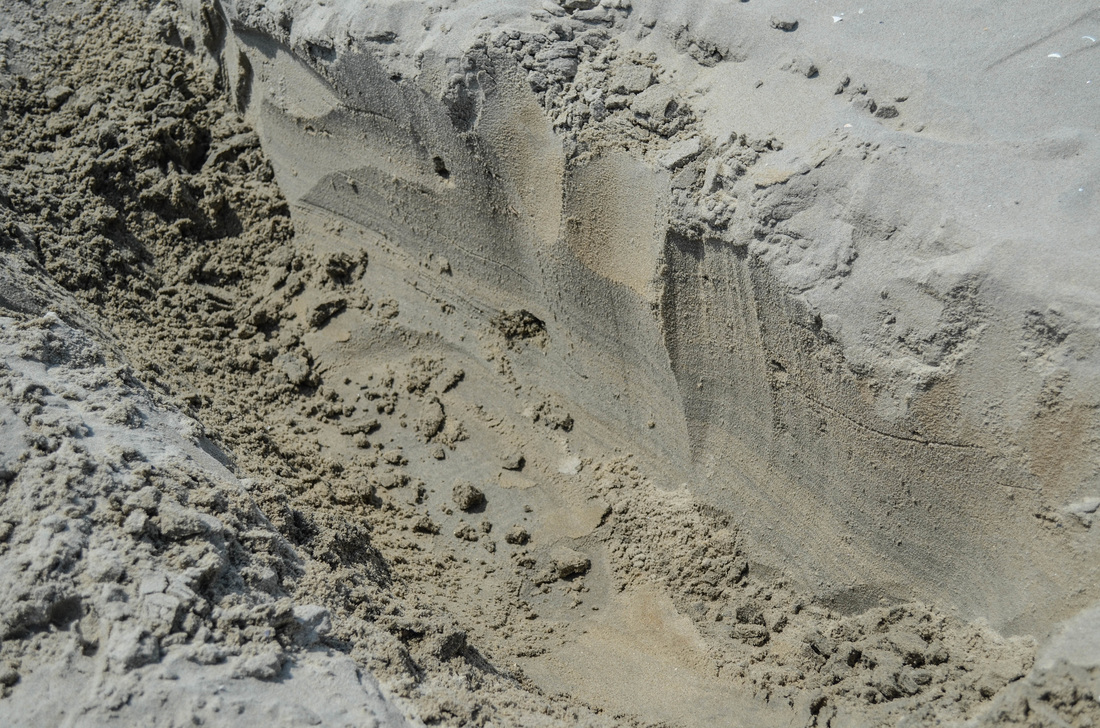
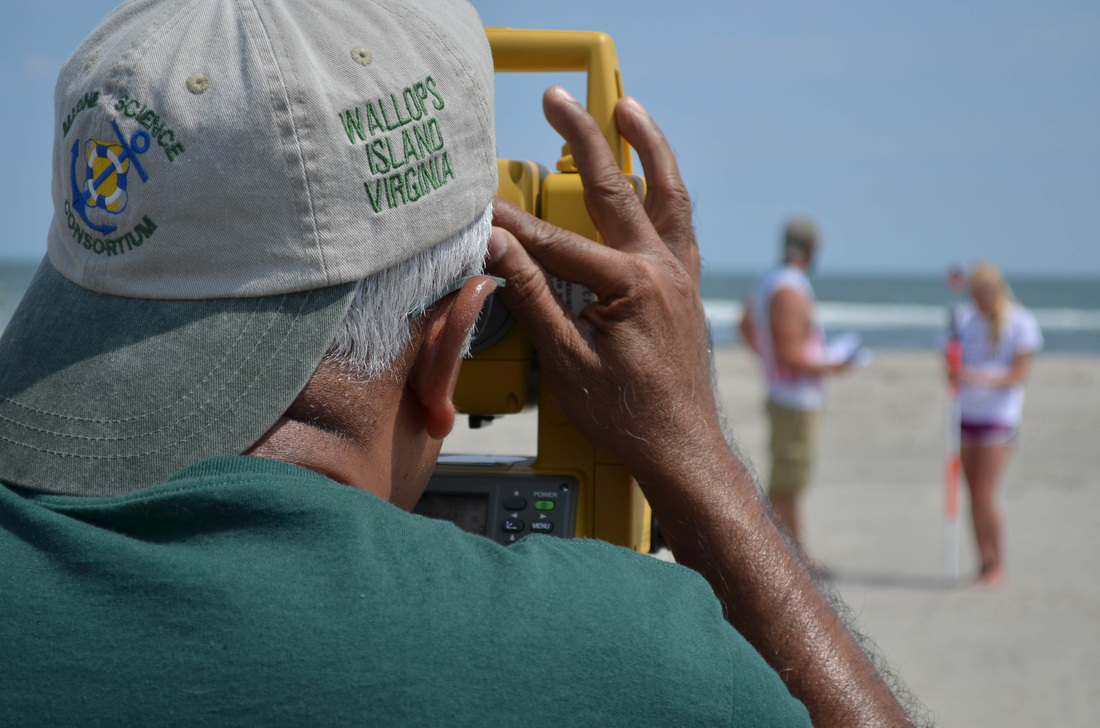
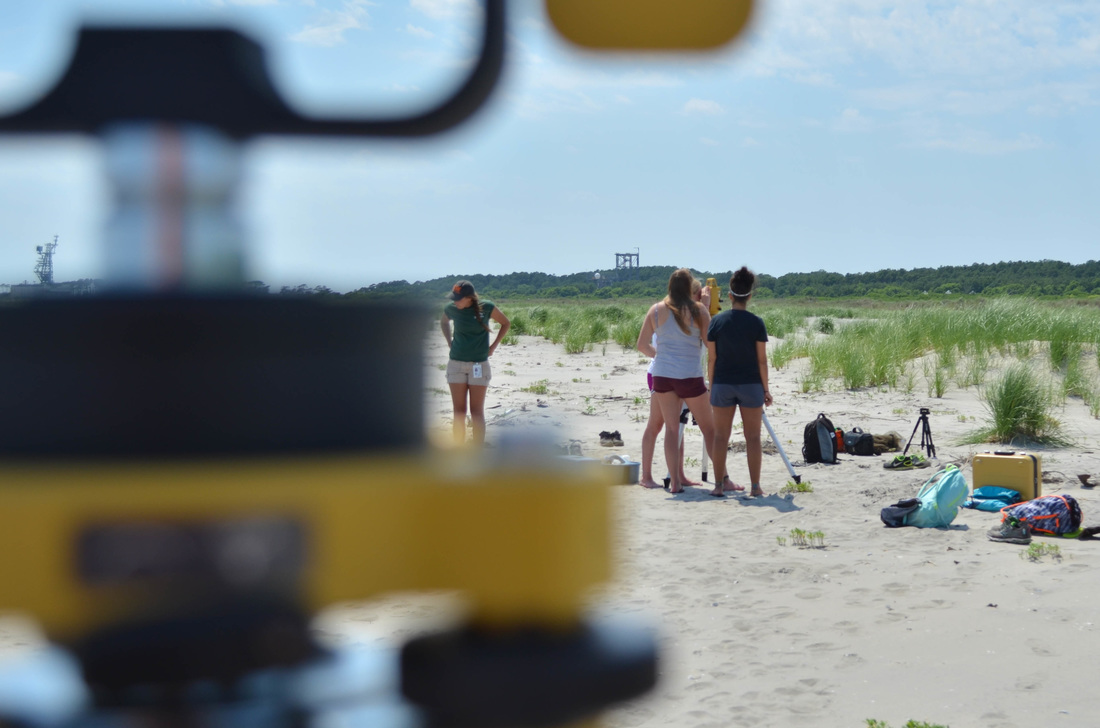
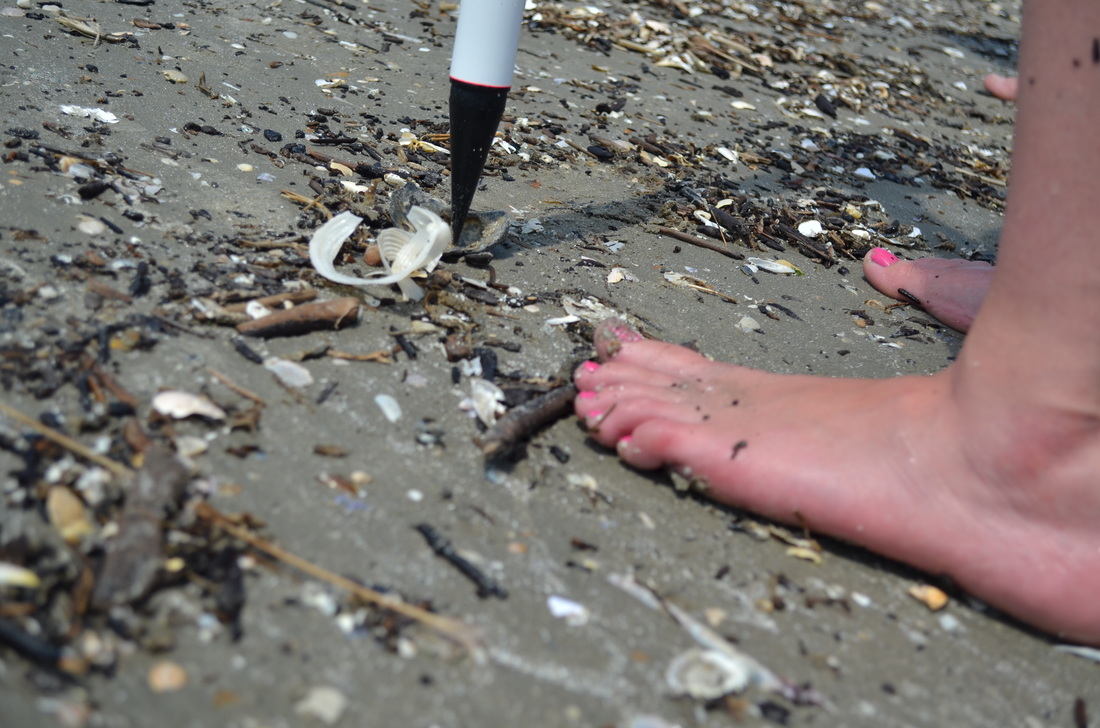
 RSS Feed
RSS Feed

